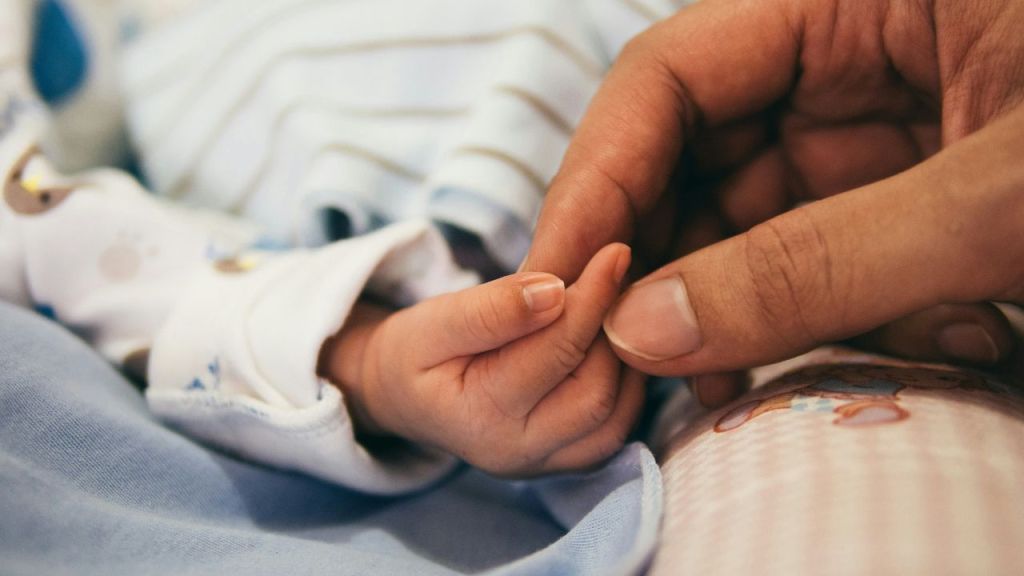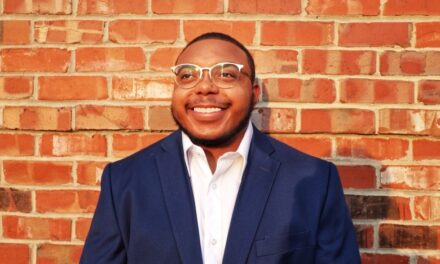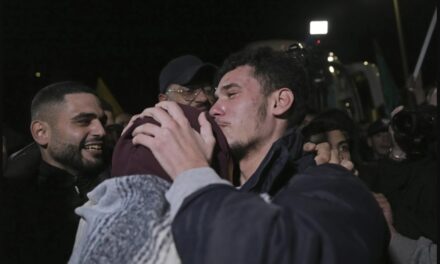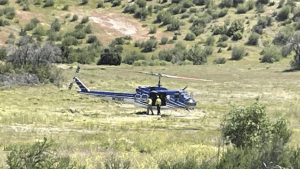By Mylika Scatliffe
AFRO Women’s Health Writer
Pregnancy and women’s reproductive choices have long been hot button issues in the political arena, even more so in the years since Roe v. Wade was overturned by the U.S. Supreme Court in 2022.

Nearly half of all pregnancies that occur each year around the world each year are unintended. This means roughly 121 pregnancies are not planned, according to the United Nations Fund for Population Activities.
Abortion and a woman’s right to choose when to bear children–if at all– has been the impetus for numerous protests, legislation and personal, heart wrenching decisions. What gets lost in the political and moral wrangling is another option: adoption.
Many people think of adoption in terms of a young couple that “got into trouble” or children that have been left in foster care. However, children with medically complex issues don’t immediately come to mind.
Advocates for Children and Families (ACF), a licensed child placement agency based in North Miami, Fl., has been advocating for the well-being of children and families since 1992. In addition, their ACF+ program addresses needs specific to the adoption of medically complex children and their families.
“In your typical adoption scenario, you usually have a mom who might be parenting other children on her own, doesn’t have a lot of family or financial support, or the birth father may not be involved,” said Rob Lamarche, executive director of ACF. “Maybe she’s a young woman who is just not at the point in her life where she feels she can take care of a child, and the stark reality is that there are more and more states where termination is no longer an option. So, she decides to make an adoption plan with ACF.”
ACF+ does not work with children in the foster care system. Instead, they usually work in placing newborns or slightly older children up to the age of about three years old.
“Many of the children whose mothers have made an adoption plan with ACF were intended and parts of families who planned to parent them, but for the discovery of the child having special needs,” said Lamarche.
“They may have learned the baby has Down Syndrome, or had a traumatic birth, or were extremely premature with a three or four level brain bleed, which can have some pretty serious repercussions down the road,” said Lamarche.
This is where ACF+ comes in.
“For whatever their personal reasons, they have decided they are not prepared or frankly not interested in parenting a child with very specific and complex needs,” said Lamarche. “We step in to advocate for that child and find a family who is going to be just as thrilled to adopt them as any other family would be to adopt a ‘typical child.’”
Jennifer Kelly, program director for the ACF+, is an expert at navigating adoptions involving children with medically complex issues. She wants to make it clear that while ACF and ACF+ is there to advocate for children and to find them forever homes, they never try to push anyone into adoption.
“We’re here to empower women and families to make the decision that is best for them and their situation. If that means voluntary adoption that’s fine. If in the end they decide they want to parent their baby, that’s fine too,” said Kelly.
Families looking to adopt babies approach ACF as well. Often families will come forward and say they are open to adopting any child, including one with disabilities or special needs. Others may come forward with limitations such as wanting to only adopt a deaf child because one or both parents are deaf, or they may already be parenting a deaf child.
One of ACF’s biggest current obstacles is letting people know they are out there for both birth and adoptive families who are looking for a place to go for help to start or expand their families. Kelly also wants to educate them about significant challenges and long-term ramifications of adoption.
“One challenge is to make sure that adoptive families considering placement of a child, that they are not just looking at the adorable, vulnerable infant or toddler in front of them, but that they are being realistic about a child’s medical complexities and the commitment it will entail,” said Kelly.
For example, neonatal hypoxic-ischemic encephalopathy (HIE) is a type of brain damage that occurs when a baby’s brain has been deprived of oxygen before or shortly after birth. It affects the central nervous system and babies born with HIE may have neurological or developmental problems.
“A child with severe HIE will continue to grow and become the size of an adult, but their cognitive abilities often will not develop beyond the newborn stage, so you’re eventually going to have to on a daily basis pick up a 120-pound adult and help them bathe and go to the toilet,” said Kelly.
“We have to make sure that families are not just looking at the adorable child in the photo and considering their first few years of life, but they will truly have the ability to meet every need of the next 20 or more years and that they have a realistic view of what that will look like,” said Kelly.
The second biggest challenge is making sure families have access to resources. In the United States, families who privately adopt medically complex children are eligible for the same benefits available to a family adopting a child from foster care. These benefits include a small stipend and Medicaid until the child reaches adulthood. Very few people in the country understand how to apply for these benefits, or the non-ward adoption subsidy. Kelly is an expert on how to apply for these benefits. After all, she’s been through the process of adopting a medically complex child. Her daughter’s name was Joy.
“When I adopted my daughter, I didn’t think the adoption subsidy was that important. My ex-husband was a pharmacist, I taught at a university, we had plenty of resources and what I thought was excellent insurance,” said Kelly.
Joy received millions of dollars in health care in the 14 months she lived.
“I was responsible for paying 10 percent which means I had medical debt of about $1,000,000. That’s not sustainable for most families,” continued Kelly.
There are very few people in the country who understand how to apply for the non-ward adoption subsidy benefit, or that it is even available.
“It takes on average about 100-man hours to apply for these benefits, and it’s a daunting task when you have so many other obligations and family to care for. We do the work to get families Medicaid for the child, so they’ll have that stipend to help cover things insurance doesn’t cover. We want to help set families up for permanency, so they’re not facing a financial crisis over trying to provide for their child or children,” said Kelly.
Voluntary adoption is not a challenge just for children with medically complex issues. Children and families in a variety of circumstances often need help. The Cradle is a non-profit, licensed adoption agency headquartered in Evanston, Ill. The organization has facilitated more than 16,000 domestic and international adoptions since opening in 1923. The Cradle has been at the forefront of African-American infant adoptions as well as LBGTQ+ placements in the Illinois and Indiana areas.
The Ardythe and Gale Sayers Center for African American Adoption is a program at The Cradle that focuses on adoptive parent recruitment in the Black community. The program began in 1994 and was renamed in 1999 in honor of Chicago Bears Hall of Famer Gale Sayers and his wife Ardythe, who are Cradle adoptive parents.
“It’s really important to us to have a diverse group of families that are prepared to adopt. Back in the 1990s, we were having women coming to us hoping to place their child with a Black family and we realized we needed more Black families available and willing to adopt,” said Pam Tancredi, vice-president of adoption and family support at The Cradle.
The Sayers Center is one of the only programs in the country that promotes adoption awareness in the African-American community.
“In 2023, 81 percent of Black or multi-racial babies were placed with Black families through the Sayers Center. Since 1953, over 1,000 African-American and multi-racial babies have been placed with adoptive families and over 700 of them are part of the Sayers Center,” said Tancredi.
The Cradle is the only adoption agency in the United States that provides an on-site nursery as a safe, neutral place for infants to stay while their parents decide if voluntary adoption or parenting them is in their baby’s best interest.
“Our team of social workers, counselors, and education and outreach staff offer inclusive, lifelong support to the many people whose lives have been touched by adoption, including birth parents, adopted persons and adoptive parents,” said Tancredi.
The Cradle celebrated its 100-years throughout 2023 and took advantage of the milestone to share its story and build its community of supporters.
The post A look at how adoption agencies provide invaluable service to community appeared first on AFRO American Newspapers.












